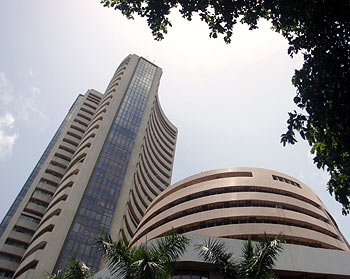
Welcome to the final part of this series on the world of investments. Let us now take a look at investment avenues other than equity and debt: real estate and gold.
Real estate
Real estate is turning out to be one of the best forms of investment especially since 2000. However, buying any property is not good investment. You must consider loads of factors before investing in a property. The factors, which we will discuss later, vary depending upon the investment vehicle selected.
Advantages: Regular income, a natural value attached to it, use of leverage to buy real estate (taking a property loan to buy another property) and the advantage of getting tax deduction on home loans.
Disadvantage: Poor liquidity. If you invest your hard earned money in a troubled property you can be sure to burn your fingers.
The author is a certified financial planner and can be reached at dhanplanner@rediffmail.com.

Let us now take a look at the different vehicles through which investors can invest in real estate.
Property
This can be divided into residential and commercial. There are various factors you need to consider before investing in residential or commercial property. Some of them are: the area or the locality where the property is situated, the reputation of the builder/ developer from whom you are buying, clear property documents to avail a loan.
Also, check the loading of the building in which you are investing. Loading indicates how much more the seller is charging you over and above the available carpet area.
If the property is under development be careful to check the history of the developer as there have been cases where the construction has stopped mid-way and your money remains stuck for long time. If you have invested in a property to earn rental income then you need to check the going rental income in the locality where you are investing.
Advantage: One of the best avenues for regular rental income if you select the right kind of property; also the tax advantage attached to it.
Disadvantage: Liquidity. You may find it difficult to sell your property when real estate market is down as was seen since January 2008.
Also, if not given to the right tenant the risk that the tenant may not be maintain it well or the tenant defaulting on paying monthly rent looms large.

The important factors while considering purchase of land are: area or locality where you are buying the plot, reputation of the landlord and the documents of the land.
Advantages: Demand for land is ever increasing. Hence the value of land rarely depreciates.
Disadvantage: Liquidity. If you don't fence the plot you have purchased then there is always the possibility of illegal encroachment. Also, banks won't lend you money just for the purpose of purchasing a plot unless you have plans to develop it. In that case you will have to make provision for the money required to buy the parcel of land.
Infrastructure stocks and mutual funds
Investors, who do not have the money required to invest in properties or are afraid of the associated risks, can always invest in shares or stocks of infrastructure companies or in mutual funds investing in infrastructure stocks.
However, adequate research before investing in them is a must and you must be prepared for volatility. Adopt this route only when you have plans to lock-in your money for a period of 8 to 10 years.
Advantages: Smaller amount required for investment, good liquidity as you can redeem your shares as and when you want.
Disadvantages: Volatility of the stock market. If you invest without doing your research then you can burn your fingers.

The shimmer of gold has attracted one and all from time immemorial: as an investment tool and for personal use.
Gold is an attractive form of investment due to its liquidity. You can redeem gold in any part of the world, at any time and against any desired currency. Gold is considered to be lifesaver for all times and has served as a cushion especially during recession.
You must surely have noticed how gold prices have zoomed ever since we started feeling the heat of global economic turmoil.
Let us take a look at the different investment vehicles available when buying gold.
Gold coins or bars
Ensure that you invest in 24 carat gold coins or bars with a purity level of 99.9. Investing in gold jewellery is not such a good idea because ornaments are made using 22 carat or 18 carat gold.
Also, you pay huge making charges. So if you think of selling gold jewellery you are assured that you will not get the worth of your initial investments.
The disadvantage in investing in gold coin and bars are: fear of theft if kept at home and lack of purity if the coin or bar is not purchased from a legitimate jeweller or a bank.

Gold ETFs are just like exchange traded funds. The only difference is that gold ETFs track the price of gold instead of a given index. The base investment is in 24 carat gold of 99.5 purity. For investors who have problems of storing physical gold can invest in gold ETFs. Just like mutual funds your investments are in the form of digital units. On redemption you have the option to either redeem units in gold bars or in cash.
Advantages: No storage problem, flexibility in buying them at your convenience, even available online, you can make a systematic investment plan too.
Disadvantages: Fund management charges, transaction costs and other operational charges. Also, if gold ETF units are not traded actively on any exchange then redeeming them can be a problem.
The advantages, however, far outweigh the disadvantages and gold ETF are definitely an attractive form of investment.
Gold bonds
A bond backed by gold. In India gold bond deposit schemes are available with banks. Here you deposit your physical gold against which the banks issue bonds of an equivalent value. On redemption you can get the principal either in the form of gold or cash. This is again an option for investors who have storage problems.
The only hitch is you need to deposit 24 carat gold to avail of this investment opportunity.
Despite the pros and cons of investing in gold, it makes investment sense to put at least 5 per cent of your overall money in gold. Gold is a good form of diversification. Remember to space out your investments in gold just like the systematic investment plans of mutual funds. This will give you the benefit of averaging.
Now that you know of various investment avenues you can rest assured that there is a product available for all investors depending upon their goals in life, their investment timeline and their risk appetites. So be wise and invest accordingly. But pause a little to do remember that returns, while an important factor in selecting investment avenues, should not be the only criteria.